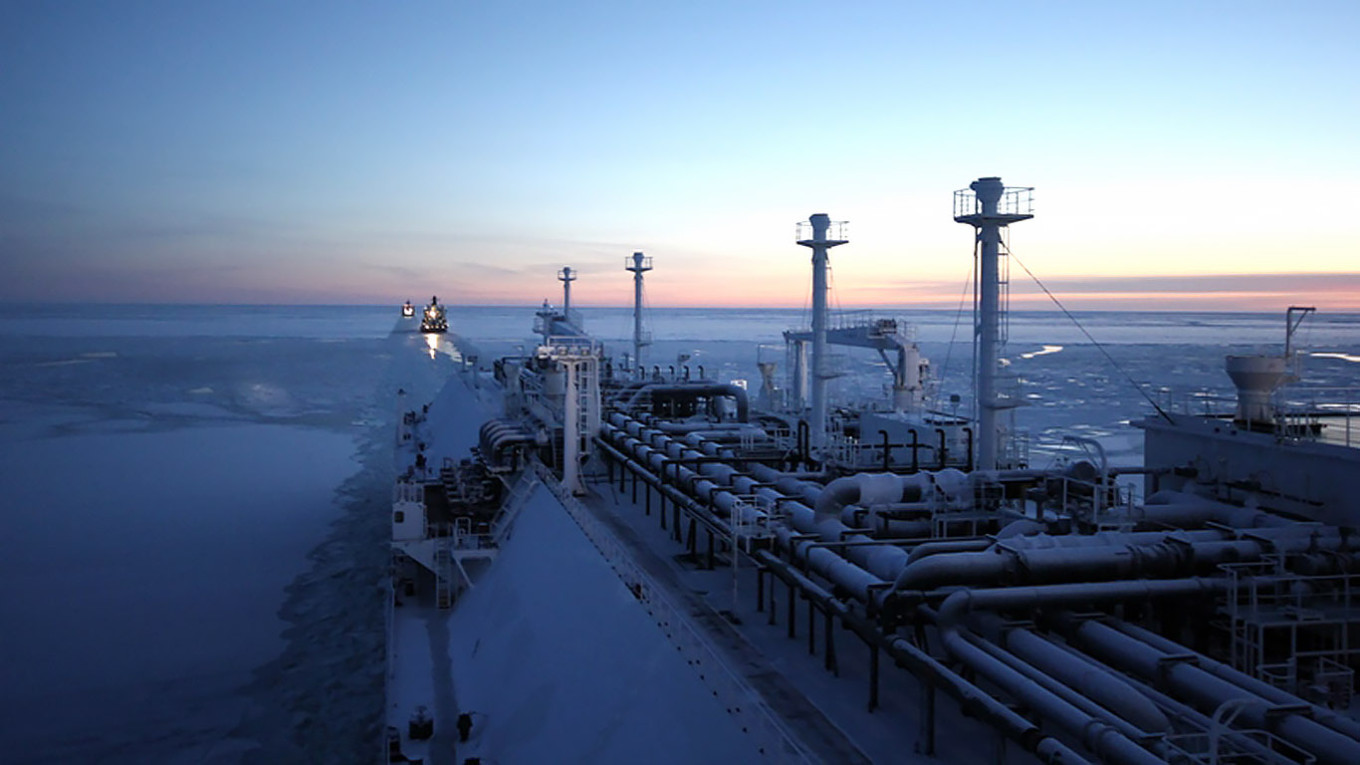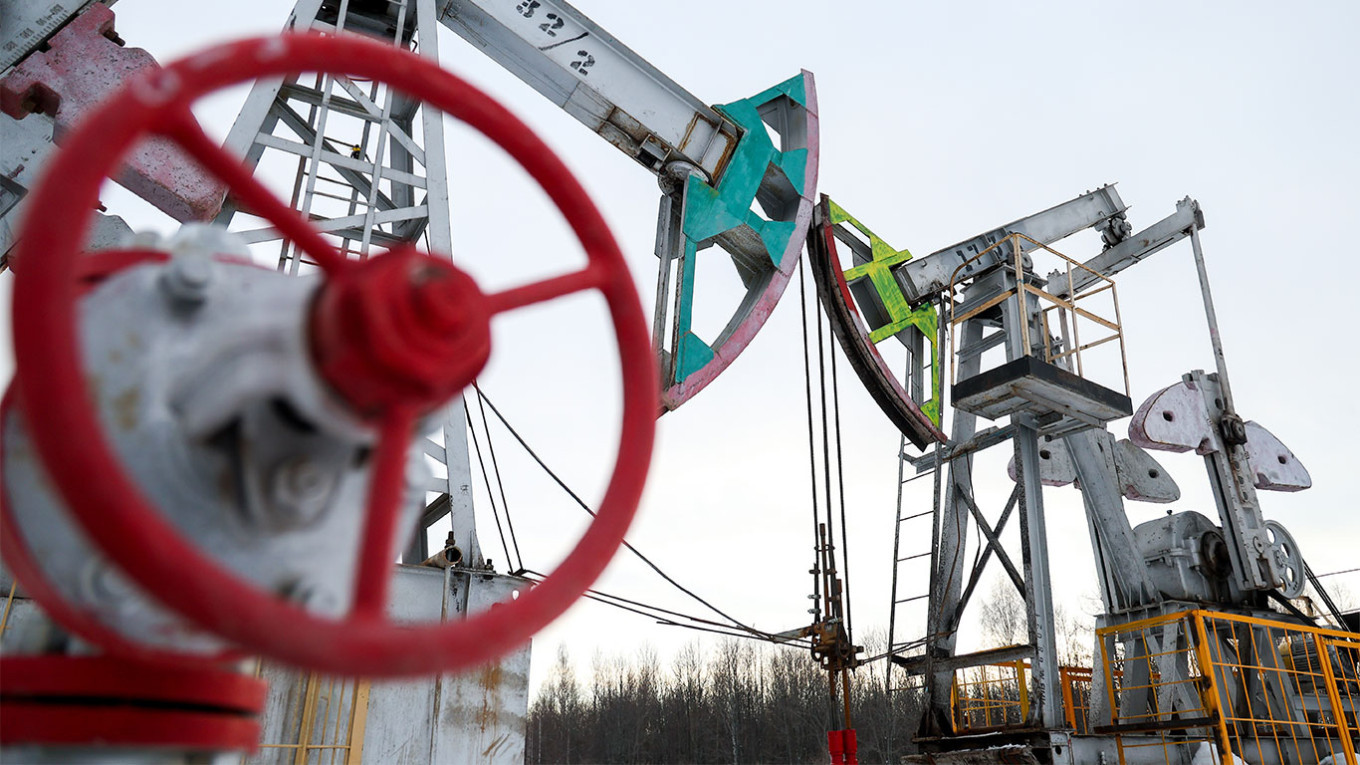Unlike Trump’s first presidential victory in 2016, which Russian elites greeted with jubilation, the Republican’s comeback is being met with more apprehension in Moscow.
At least from an economic point of view, there are no good omens for a second Trump administration.
Sanctions pressure set to continue
Trump made all sorts of controversial (and contradictory) promises and threats during his campaign.
His off-the-cuff remark in September about the prospect of lifting sanctions on Russia and Iran to ensure that the U.S. dollar remained the world’s leading reserve currency rattled some observers.
The likelihood of this happening, however, appears slim.
Trump’s track record from his first term serves as a good case in point. Even back then, when Trump seemed more willing to make friends with Russia — and before the Kremlin’s full-scale invasion of Ukraine — the Republican still failed to ease pressure on Moscow.
On the contrary, sanctions were tightened. The U.S. Congress, wary of Trump’s pro-Russian statements, passed the famous Countering America’s Adversaries Through Sanctions Act (CAATSA), which contained measures that went beyond those introduced by Barack Obama.
The measures were adopted by Congress over Trump’s head, who had to withdraw his opposition and sign the bill.
Even the Kremlin’s staunchest supporters admit that the notion that Trump would move to lift sanctions now — with the Russia-Ukraine war in full swing and so many resources being expended to help Kyiv — is too much to hope for.
Sure, in theory, Trump can legally make exceptions to the existing sanctions regime against Russia.
He also has the authority to revoke the sanctions-authorizing executive orders that the Biden administration has used to punish Russia.
But with Congress seemingly in bipartisan agreement on Russia-related restrictions and commitment to supporting Kyiv, lawmakers could thwart any moves Trump makes just as they did in his first term.
House Speaker Mike Johnson (R-La.), while reluctant to hike funding for Ukraine, has criticized Russia for its invasion of its neighbor and expressed no desire to lift sanctions.
Lawmakers John Thune, John Cornyn and Rick Scott — all cited as candidates to be the next leader of the Republican-controlled Senate — have also criticized Russia’s invasion and pushed for tougher sanctions against Moscow.
U.S. to push Russian gas out of Europe
Some elements of the confrontation between Russia and the West may indeed appeal to Trump’s mercantilist sensibilities. One is the sharp increase in American liquefied natural gas (LNG) supplies to Europe to replace Russian pipeline gas since the invasion of Ukraine, which helped make the U.S. the continent’s top LNG supplier by 2023.

Washington and Brussels have also been putting increasing pressure on Russia’s own LNG industry. Moscow needs LNG to be able to ship gas by sea, as opposed to the traditional supply of natural gas by pipeline, which faces headwinds due to geopolitics and infrastructure bottlenecks.
The main casualty of Western pressure so far has been Russia’s flagship Arctic-2 LNG project, which has had to scale back production and is facing shipping headwinds.
Nonetheless, Russia managed to supply around 14.5 million tons of LNG to Europe in the first 10 months of 2024, although this is a far cry from the U.S. volumes.
In 2023, the U.S. supplied around 53.2 million tons of LNG to the EU and the UK compared to Russia’s 13.5 million tons.
Meanwhile, some within the EU are pushing for new measures against Russian LNG, something that would make American gas even more important for Europe and something that Trump craved even during his first term.
Lower oil prices to hit Russia’s coffers
Another potential threat to Russia comes from the Trump administration’s likely measures to encourage further growth in U.S. oil production, just as the country’s economic confrontation with China is likely to intensify.
All of this risks cutting into Russia’s oil revenues, a major driver of its economy. Higher U.S. oil production means more global supply, while a possible economic slowdown in China, one of Russia’s key oil markets, could reduce its appetite for Russian oil and gas.
Oil prices were already down around 3% on Tuesday, with Brent crude futures at $74.02 per barrel following Trump’s victory, Reuters reported.

Analyst Tina Teng cited a strong dollar weighing on commodity prices and Trump’s potential policies putting pressure on China’s economy such as new tariffs as factors weighing on oil prices.
Earlier, the World Bank forecast that the average price of one barrel of Brent crude oil would fall to a four-year low of $73 a barrel in 2025, down from $80 a barrel this year.
According to the report, global oil supply is expected to exceed demand reflecting a “major shift” in China, where oil demand has flatlined since 2023 amid a slowdown in industrial production and a rise in sales of electric vehicles and trucks powered by LNG.
A Message from The Moscow Times:
Dear readers,
We are facing unprecedented challenges. Russia’s Prosecutor General’s Office has designated The Moscow Times as an “undesirable” organization, criminalizing our work and putting our staff at risk of prosecution. This follows our earlier unjust labeling as a “foreign agent.”
These actions are direct attempts to silence independent journalism in Russia. The authorities claim our work “discredits the decisions of the Russian leadership.” We see things differently: we strive to provide accurate, unbiased reporting on Russia.
We, the journalists of The Moscow Times, refuse to be silenced. But to continue our work, we need your help.
Your support, no matter how small, makes a world of difference. If you can, please support us monthly starting from just $2. It’s quick to set up, and every contribution makes a significant impact.
By supporting The Moscow Times, you’re defending open, independent journalism in the face of repression. Thank you for standing with us.
Once
Monthly
Annual
Continue

Not ready to support today?
Remind me later.
×
Remind me next month
Thank you! Your reminder is set.